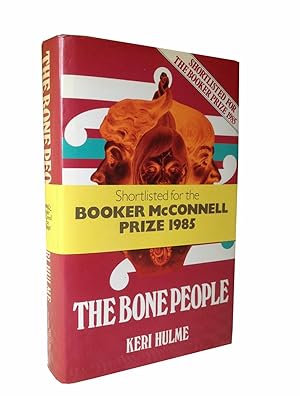
They also depict the truncation of childhood as a disturbing feature of the postcolonial condition.

Both writers invoke a kind of subaltern, effectively postcolonial child, and the threat of violence, with Hulme focusing on putative aphasia and silence and Høeg on deafness and silence, to address the manifestations of postcolonial trauma. Both adult protagonists confront the difficulty of engaging in multiple forms of translation between cultures and individuals, partly through the figure of an abused boy whose care they have assumed. Isaiah becomes deaf after enduring multiple untreated ear infections, to the point where he “couldn’t hear a thing” (Høeg 497). Hulme’s Kerewin Holmes is a half Māori and half Pākehā woman who adopts the mute boy Simon, and Høeg’s Smilla Jaspersen is a half Inuit and half Danish woman who fosters the deaf boy Isaiah, whose deceased father and alcoholic, often absent mother are both Inuits.

Both novels explore hybridity, in part, through the figure of the single female surrogate parent of a symbolically or partly orphaned child. The Bone People has sold more than a million copies worldwide and been translated into nine languages.In this essay, I try to account for the unlikely affinities between Keri Hulme’s The Bone People, published in New Zealand in 1984, and Peter Høeg’s Smilla’s Sense of Snow, published in Denmark in 1992. As a family, we're very pleased to be able to see that."Īuction house, Dunbar Sloane, estimates the manuscript will likely fetch between $35,000 to $50,000 in its rare books auction in August. "I think Keri was over the moon to think her manuscript could support that in the future. The only reason it's being sold at auction is it's basically raising money to go towards a trust which will give out grants to Māori authors," Salmons said. "This was something that was discussed between her and my mum and my other aunty, Diane. Now, her nephew Matthew Salmons has told RNZ that Hulme's final wish was for the original manuscript of the book to be sold so the funds could be used to assist Māori writers. Hulme, 74, who died in December last year, was the first New Zealander to win the prestigious Man Booker literary award in 1985 for her novel, The Bone People.

Māori author and poet Keri Hulme's (Ngāi Tahu, Ngāti Māmoe) final wish was to help other Māori writers, her nephew has revealed.


 0 kommentar(er)
0 kommentar(er)
